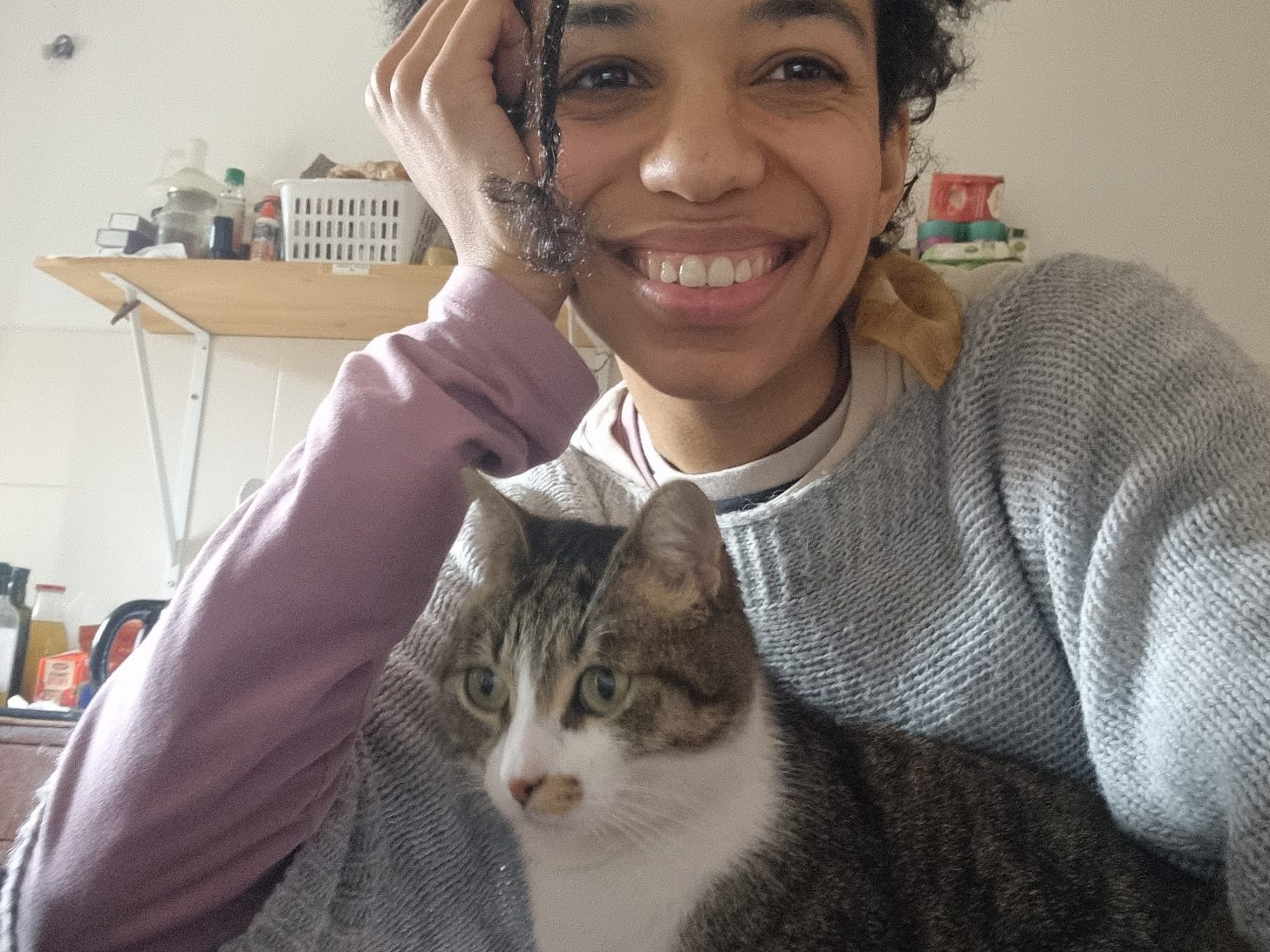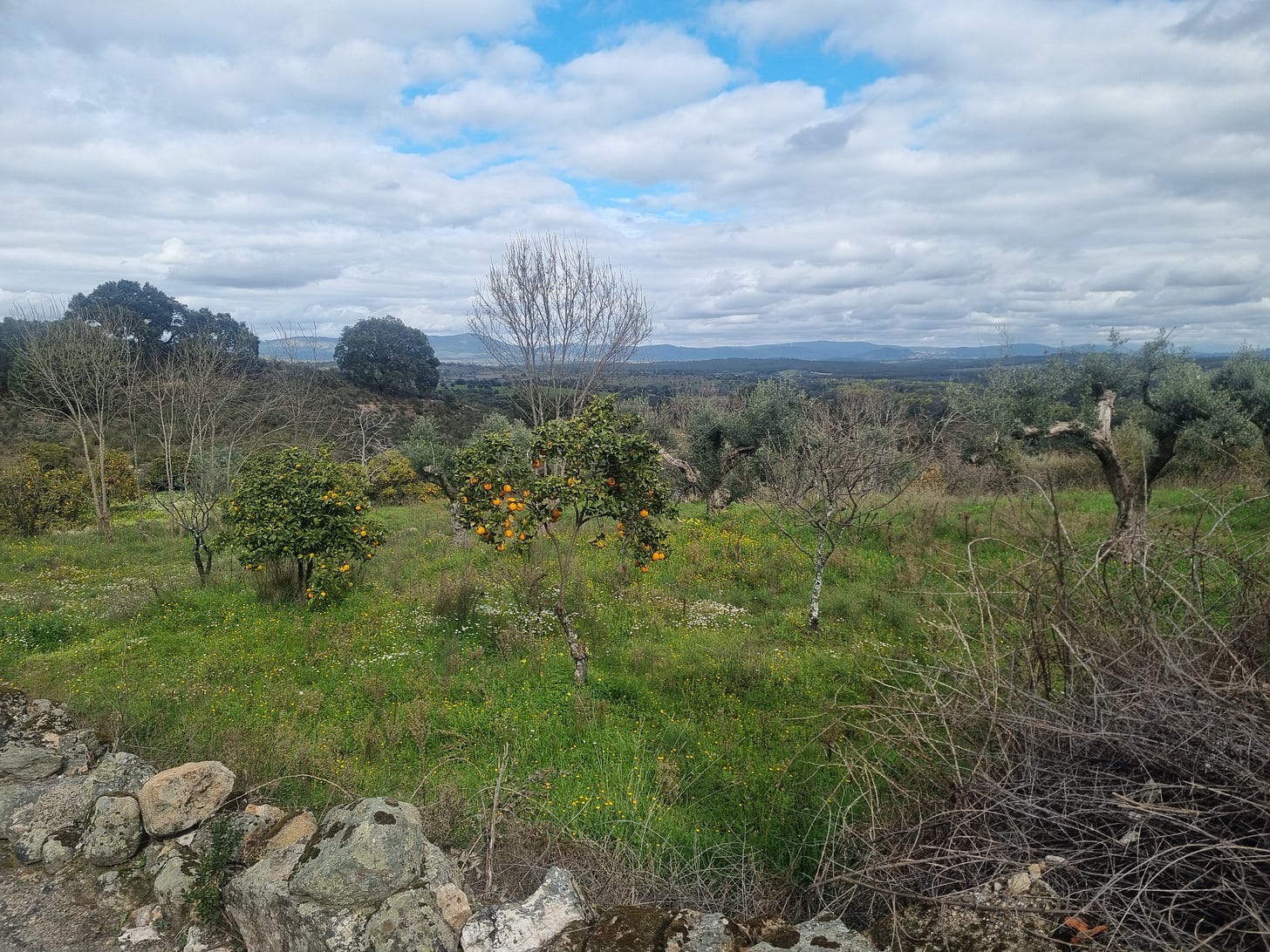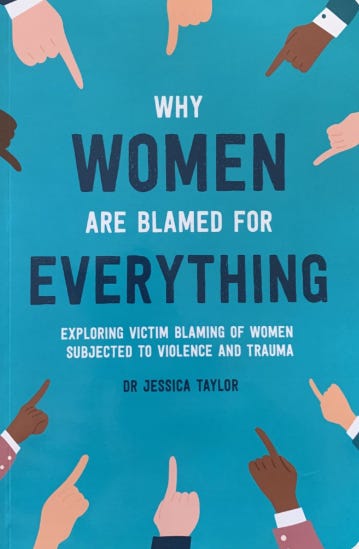woven by the world
my travels are the clothes i wear, and yes, there's a naked me underneath but also, my clothes say a lot about me too 🧦🧣
Wherever there’s lack, we can develop a coping mechanism. The lack of belonging for me developed into a hunger for travel. As a mixed person, with a Nigerian and an Austrian parent, growing up during a time when there wasn’t any social media yet where I could just find other Austro-Nigerians — or it was only just emerging and I was banned from using social media anyways — it was difficult forming not just a stable sense of self, but wrapping my head around the fact that people like me even exist. I always felt a bit like a random miracle — the emphasis on random here. Okay, okay, the word I used much more often was “alien”, but I can see the miracle now. Finally, I’ve come to a point where I find “having a stable identity” overrated. Who does anyways? I don’t want to get to a point where I know who I am. That feels stifling. Rather, I want to cultivate intimacy with myself. I want to know myself like I would a lover; constantly amazed by the new facets, quirks and idiosyncracies of myself that I discover. I want to be open to changing. Isn’t the hyperfixation on stability a resistance to transformation? Are we surprised that in Western psychiatry this “lack” is pathologized, instead of embraced and honored as deeply human?
“Having a strong, stable sense of self is essential for mental well-being, but some people may struggle to maintain a cohesive identity. This can happen to anyone, and it's normal for your sense of self to evolve as you grow and have new experiences. However, problems with identity are also a core symptom of borderline personality disorder, a condition characterized by instability in behavior, emotions, and relationships.” — What Is Identity Disturbance?
I was diagnosed with borderline, even though the results of the diagnostic test showed that I fulfilled the criteria of ADHD. Being diagnosed with borderline created deep suffering for me. However, in retrospect, resisting the pathologization of this diagnosis, also deepened my sense of justice. I questioned myself a lot, which is exactly what they say isn’t conducive to a “cohesive identity”, but it’s one of my coolest and most transformative traits. It’s deeply badass to be a questioner. A seeker. It’s what makes me a traveler. In every sense, except in the colonial “explorer” kind of way. I don’t travel to “discover” the other. I also don’t travel into “nothingness” to impose my own ways of being. I travel because it’s so fucking intimate and I’m a sucker for intimacy. To me, it’s like hugging yourself and the world at the same time. It’s saying to my friends who I visit or the local people I meet while visiting: “I accept you. I don’t look down on you. I want to know where you call home. May I learn from you?” I’m becoming as I’m traveling. How do I deal with not finding my way? How do I deal with not understanding what others are saying to me? I pick up phrases, recipes, ways of loving. One piece of clothing. Then another. Then another. Until I have a truly cute outfit. The process could also be described as the opposite: Taking off one layer of clothing after the other. However, since I wasn’t allowed to wear whatever I desired growing up, clothes represent not just freedom but also intimacy to me. Being naked doesn’t tell the full story. It’s the outfit we all start with, but who do we become after that? It matters too. I wouldn’t be the strong advocate against psychiatric labels that I am today — even at the risk of being screamed at by white psychotherapists and losing a job because of it (true story!) — if I hadn’t gone through what I went through. My healing didn’t come from being diagnosed with borderline, but fighting the system.
“Muslim women are always so hysterical”, one of them said… You see how racism and misogyny go hand in hand? The people who fired me were people of color with class privilege. They don’t have the added trauma that comes from growing up poor. They also don’t have the deep life wisdom — that goes beyond academia. There are some levels of empathy and class solidarity — which, if we’re being real, are deeply about solidarity with immigrants (should be!) — you don’t gain from a “good” education. CAPITALISM IS THE PROBLEM.
I still feel angry that I got labeled “the problem” when I was at my most vulnerable. Even just researching anything about borderline immediately makes my body tense. Being labeled borderline just adds more trauma to the trauma soup. It needs salt. It needs spices. It definitely doesn’t need added layers of shame. I don’t care how much people defend the borderline diagnosis because it seems to provide answers to our suffering, I just cannot buy into it on a structural level. It’s a scam. Why put a label on people who suffer? You just risk that borderline becomes that person’s identity.
Sometimes it’s the environment of the person who puts the label on them or in search of answers, someone puts it on themselves. When I meet someone who believes they have a “disordered personality”, I want to spare them the suffering it caused me: “Don’t go down the rabbit hole to believe that you’re broken. You’re not. The system is deeply broken, but you’re enough as you are. You’re likely a survivor of abuse if you got or claim this label. You’re likely a highly sensitive person who is a thorn in the eyes of the system because you recognize its flaws and expose its brokenness,” I say. The more of us speak out against the system, the more we’ll have alternatives. I didn’t come to these conclusions on my own. I listened to podcasts, read books and talked to people who also got diagnosed with borderline. It opened my heart oceanwide. 🌊
If you’re someone who was diagnosed with borderline, come in. Have a seat. Make yourself comfortable. You don’t have to tell me anything you don’t want to. You don’t have to tell me your life story. You don’t need to prove to me that you’re not crazy. I see you. I see us.

But people with BPD lack a core sense of self. Instead, they often feel plagued by the existential question, who am I? This question can disrupt their emotions, relationships, and self-esteem. As a result, people with BPD may seemingly change their identity on a whim. For example, they might dye their hair a different color each week or spontaneously get tattoos without considering the permanence. Their personalities may shift as seamlessly as the weather, and these changes can be confusing for the people around them. [Poor people who feel threatened by someone else’s (life) transitions and their humanness. It’s really sad actually. It’s also very much rich people behavior. So, actually, not poor people!]
In the past, I’ve stopped myself from getting tattoos because I didn’t want to seem more borderline, but there’s nothing holding me back anymore. I might get one while traveling. So borderline of me! I love traveling. I genuinely do. Rather than traveling like a tourist, I enjoy getting as close as possible to living. I enjoy making time stand still while traveling. Pausing. I’m not there to go, go, go. I travel to arrive.
Maybe that’s a metaphor for life:
Be where you are. Don’t chase the next thing, the next destination, the next goal, the next feeling. You’ve come so far already. Celebrate. Rest. Enjoy not just the journey, but the fruits of that journey too. Savor life, so it doesn’t swallow you.
Be the eater, and, if you want: the fruit.

A book everyone should read:
Why Women Are Blamed for Everything: Exploring Victim Blaming of Women Subjected to Violence and Trauma
Jessica Taylor
“She asked for it. She was flirting. She was drinking. She was wearing a revealing dress. She was too confident. She walked home alone. She stayed in that relationship. She was naïve. She didn’t report soon enough. She didn’t fight back. She wanted it. She lied about it. She comes from a bad area. She was vulnerable. She should have known. She should have seen it coming. She should have protected herself. Victim blaming of women is prevalent and normalised in society. What causes us to blame women who have been abused, raped, trafficked, assaulted or harassed by men? Why are we uncomfortable with placing all of the blame on perpetrators for their crimes against women? Based on three years of doctoral research and ten years of practice with women and girls [many of which have been diagnosed with “Borderline Personality Disorder”], Dr Jessica Taylor explores the many reasons we blame women for male violence committed against them.”
This book was so eye-opening and shame-releasing. It talked about studies where people were asked to assign blame. In the situations that were described, even when the fault was entirely (so 100%) that of the men involved, people still placed part of the blame (say 50%) — if not even the entire blame — on women.
PATRIARCHY IS THE PROBLEM.
Love,
Imọlẹ
PS: If you can, use Ecosia, instead of Google. I do too. For the Congo! ❣
PPS: It’s a tiny action, but it’s not nothing. Stay informed. Plug in. Gently. ❤





